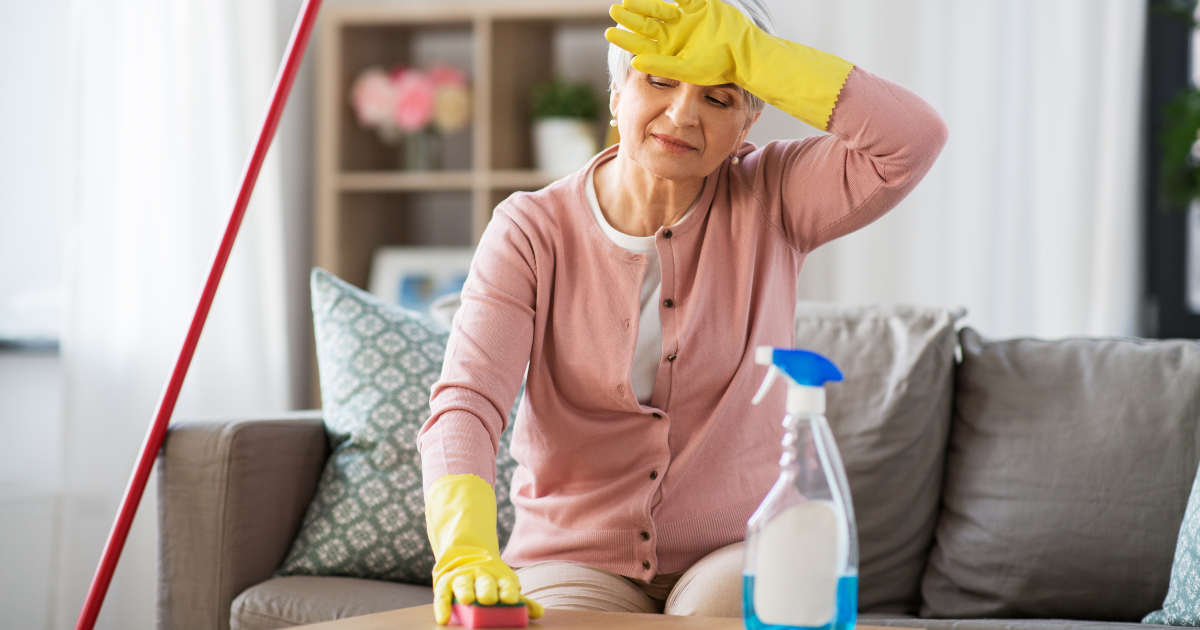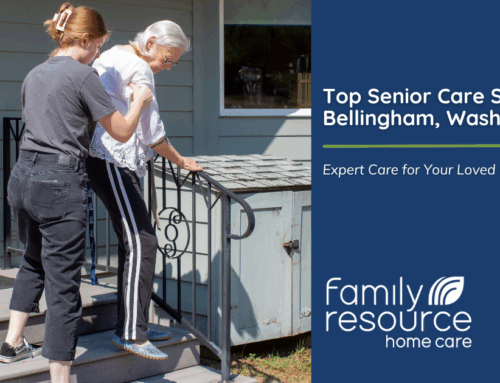Maintaining a cleanly living space is more than just a chore; it’s an essential pillar of overall well-being. However, many elderly individuals struggle to clean their homes due to formidable challenges. Health concerns, physical constraints, and mental health battles often stand in the way of preserving a tidy living environment. Within this blog, we’ll explore the intricate reasons behind why cleaning homes becomes a formidable task for the elderly. Moreover, we’ll delve into the invaluable role caregivers play in extending support through light housekeeping and meal preparation. Additionally, we’ll provide insights into identifying these challenges and proactively seeking the necessary assistance to ensure homes remain clean and conducive to a healthy lifestyle.
Reasons Elderly Individuals Struggle to Clean Their Homes
- Physical Limitations: Aging often brings physical challenges. Conditions like arthritis, decreased mobility, or chronic illnesses can limit an individual’s ability to perform household chores effectively. Tasks that were once manageable become strenuous, making routine cleaning activities difficult to accomplish.
- Health Conditions: Besides physical limitations, health issues like dementia, Alzheimer’s disease, or other cognitive impairments can lead to forgetfulness, disorientation, and decreased focus. These conditions can significantly impact an individual’s capacity to maintain cleanliness in their homes.
- Mental Health Struggles: The loss of loved ones, isolation, or declining physical health can contribute to mental health issues such as depression or anxiety among the elderly. These conditions can lead to a lack of motivation and energy, making it challenging to keep their homes clean.
How Caregivers Offer Solutions
- Light Housekeeping Assistance: Caregivers play a crucial role in assisting elderly individuals with light housekeeping tasks. Simple activities like dusting, vacuuming, organizing, and tidying up spaces can significantly enhance the cleanliness and safety of their living environment.
- Meal Preparation: Caregivers adept in meal preparation can ensure that elderly individuals receive nutritious and balanced meals. Catering to dietary needs and preferences, caregivers contribute to the overall health and well-being of their clients.
Identifying Challenges and Seeking Help
- Observation and Communication: Identifying signs that an elderly individual might be struggling to clean their home involves observation and open communication. Notice if the home appears increasingly unkempt, if certain chores are left undone, or if the individual expresses difficulty in managing household tasks.
- Encouraging Conversations: Encouraging open conversations about the challenges they face can help identify areas where assistance might be needed. Approach the topic with empathy and understanding, ensuring them that seeking help is a positive step towards maintaining a clean and healthy living space.
- Seeking Professional Caregiving Support: When it becomes evident that an elderly individual requires assistance in cleaning their home, seeking professional caregiving support is crucial. Trained caregivers can provide the necessary help while ensuring the individual’s comfort and dignity.
Conclusion
Maintaining a clean home is essential for elderly individuals’ overall health and well-being. However, various challenges, including physical limitations and mental health struggles, can hinder their ability to clean their homes effectively. Caregivers play a vital role in offering solutions through light housekeeping and meal preparation services. We have over 30 locations across Washington, Oregon, and Idaho, including Wenatchee and Moses Lake, Washington where we are actively ready to assist those in need. Seeking help is a positive step toward ensuring a clean and healthy living environment for elderly individuals, enhancing their quality of life.
Sources:






